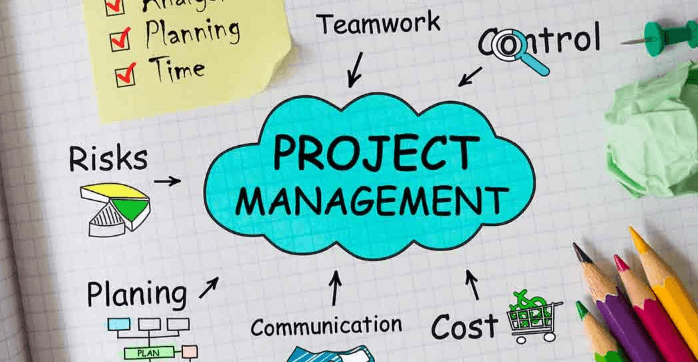How to Choose the Right Project Management Service

Choosing the right project management service can be a game-changer for any organization, whether it’s a small startup or a large corporation. The right service not only streamlines processes but also ensures that projects are completed on time, within budget, and to the desired quality standards. With a plethora of options available in the market, making an informed choice can be daunting. This article will guide you through the key factors, types of tools, and expert recommendations on how to choose the right project management service that aligns with your business needs.
Understanding Project Management Services
Before diving into the selection process, it’s essential to understand what project management services entail. These services are designed to help organizations plan, execute, and monitor projects effectively. They provide a framework that ensures tasks are organized, resources are allocated efficiently, and teams collaborate seamlessly. Project management services can range from software tools to consultancy services, each offering unique features and capabilities.
Importance of Selecting the Right Project Management Service
Choosing the right project management service is crucial because it directly impacts the success of your projects. A well-suited service can lead to improved productivity, better team collaboration, and successful project completion. On the other hand, a poor choice can result in missed deadlines, budget overruns, and frustrated team members. Therefore, the decision should be made with careful consideration of your specific business requirements.
Key Factors to Consider When Choosing a Project Management Service
When selecting a project management service, several key factors should be considered:
1. Project Size and Complexity
The size and complexity of your projects will significantly influence your choice of service. Larger projects with multiple stakeholders and moving parts require robust tools with advanced features like task automation, Gantt charts, and resource management. Smaller projects may benefit from simpler, more intuitive tools that focus on ease of use.
2. Team Size and Structure
Consider the size and structure of your team. If you have a large team distributed across various locations, a cloud-based service with strong collaboration features is essential. For smaller, co-located teams, a simpler tool might suffice. It’s also important to consider the technical expertise of your team; some tools require a steeper learning curve than others.
3. Integration with Existing Tools
Your chosen project management service should integrate seamlessly with the tools your team already uses, such as email, CRM systems, or development platforms. Integration can help streamline workflows, reduce the need for manual data entry, and minimize the risk of errors.
4. Customization and Flexibility
Every project and team is unique, so the ability to customize the project management service to fit your specific needs is crucial. Look for services that allow you to tailor workflows, dashboards, and reporting features to match your processes.
5. Budget and Cost-Effectiveness
Cost is always a consideration. Some project management services charge per user, while others offer a flat rate. It’s essential to evaluate the pricing structure and ensure that it fits within your budget. However, don’t sacrifice essential features for the sake of saving money—investing in a more expensive tool might pay off in the long run if it leads to better project outcomes.
6. User Experience and Ease of Use
A tool that’s difficult to use will hinder productivity rather than enhance it. Look for a project management service with an intuitive interface and easy-to-navigate features. Consider setting up a trial period where your team can test the service to ensure it meets their needs and is user-friendly.
7. Support and Training
Even the best tools can pose challenges, especially during the initial setup. Ensure that the service you choose offers robust support and training options. This could include live support, comprehensive documentation, video tutorials, or even on-site training.
8. Security and Compliance
Data security is paramount, especially if you’re managing sensitive or confidential projects. Ensure that the service you choose complies with relevant security standards and offers features like data encryption, access controls, and regular backups.
9. Scalability
As your business grows, your project management needs may evolve. Choose a service that can scale with your organization, offering advanced features and higher capacity as required.
10. Reporting and Analytics
Effective project management requires access to accurate data and insights. Look for services that offer comprehensive reporting and analytics features, enabling you to track progress, identify bottlenecks, and make data-driven decisions.
Types of Project Management Services
Project management services come in various forms, each catering to different needs and preferences. Understanding the types available can help you make a more informed decision.
1. Traditional Project Management Software
These are comprehensive tools designed for detailed project planning and execution. They typically include features like Gantt charts, resource allocation, and time tracking. Examples include Microsoft Project and Oracle Primavera.
2. Cloud-Based Project Management Tools
Cloud-based tools offer the advantage of accessibility from anywhere, making them ideal for remote or distributed teams. They often come with real-time collaboration features and integrations with other cloud-based services. Examples include Trello, Asana, and Monday.com.
3. Agile Project Management Tools
Agile tools are designed for teams following agile methodologies like Scrum or Kanban. They focus on flexibility, iterative progress, and continuous feedback. Popular options include Jira and ClickUp.
4. Specialized Project Management Tools
These tools are tailored for specific industries or project types. For example, construction project management tools might include features for scheduling, budgeting, and on-site collaboration. Examples include Procore and Buildertrend.
5. Open-Source Project Management Tools
Open-source tools offer the flexibility of customization, often at a lower cost. They are ideal for organizations with technical expertise and a desire for a highly tailored solution. Examples include OpenProject and Redmine.
Evaluating Project Management Services: A Step-by-Step Guide
To make the right choice, follow this step-by-step guide:
1. Define Your Project Management Needs
Start by clearly defining what you need from a project management service. Consider your project size, team structure, and any specific features that are essential for your work.
2. Research and Shortlist Options
Once you have a clear idea of your needs, research available options. Look for reviews, case studies, and user testimonials to understand how different services perform in real-world scenarios.
3. Test and Compare Services
Most project management services offer free trials or demos. Take advantage of these to test the tools with your team. Pay attention to usability, feature set, and how well the service integrates with your existing tools.
4. Consider Long-Term Costs and Benefits
Don’t just look at the upfront cost. Consider the long-term benefits, such as increased productivity and better project outcomes. A service that costs more initially might save you money in the long run by preventing project delays or errors.
5. Make a Decision and Implement
After thorough evaluation, choose the service that best fits your needs. Plan the implementation carefully, ensuring that your team is trained and that the transition is smooth.
Common Mistakes to Avoid When Choosing a Project Management Service
Even with the best intentions, it’s easy to make mistakes when choosing a project management service. Here are some common pitfalls to avoid:
1. Focusing Only on Price
While budget is important, choosing the cheapest option without considering the features and support it offers can lead to poor project outcomes.
2. Ignoring User Feedback
If your team finds the tool difficult to use, productivity will suffer. Always consider user feedback during the selection process.
3. Overlooking Integration Capabilities
A tool that doesn’t integrate well with your existing systems can create silos and inefficiencies. Always check integration options before making a decision.
4. Failing to Plan for Scalability
Choose a service that can grow with your organization. Switching tools as your business expands can be costly and time-consuming.
5. Not Testing the Service
Relying solely on online reviews or sales pitches can be misleading. Always test the service with your team before committing to a purchase.
Why the Right Project Management Service Matters for Business Success
The right project management service is more than just a tool; it’s a strategic asset that can drive business success. By enabling better planning, execution, and monitoring, a well-chosen service helps ensure that projects are completed on time, within budget, and to the desired quality standards. This, in turn, leads to satisfied clients, a motivated team, and a strong reputation in your industry.
Expert Recommendations for Choosing the Right Project Management Service
Experts recommend following a structured approach when choosing a project management service. Start by understanding your specific needs, then shortlist tools that align with those needs. Testing the tools with your team is crucial, as is considering long-term scalability and integration capabilities. Don’t rush the decision—take the time to choose a service that will support your business now and in the future.
FAQs
What are the most important features to look for in a project management service?
Key features include task management, collaboration tools, integration with existing systems, customizable workflows, and robust reporting capabilities.
How much should I budget for a project management service?
Budget depends on your team size, the complexity of your projects, and the features you need. Prices can range from free for basic tools to several thousand dollars per year for comprehensive services.
Can I switch project management services if my needs change?
Yes, but it can be challenging. Look for tools that offer easy data export and import options to facilitate a smoother transition.
Is it better to choose a cloud-based project management tool?
Cloud-based tools are ideal for distributed teams and offer the advantage of accessibility from anywhere. However, they may not be necessary for smaller, co-located teams.





